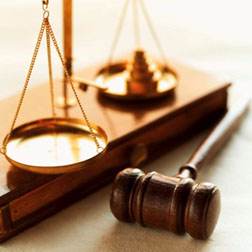 When someone enters a property, they have a belief that they will not be injured. The person that owns the property or the non-owner resident of the property is responsible for maintaining safe surroundings. This is known as “premises liability.” Anyone who has control over a piece of property must do everything possible to keep people on that property safe due to the responsibility of premises liability.
When someone enters a property, they have a belief that they will not be injured. The person that owns the property or the non-owner resident of the property is responsible for maintaining safe surroundings. This is known as “premises liability.” Anyone who has control over a piece of property must do everything possible to keep people on that property safe due to the responsibility of premises liability.
Liability for an accident or injury is determined by laws and procedures of the state of Texas. In many cases, the status of the injured person is a determining factor in assigning liability, as are the condition of the property and the activities of the owner.
Legal Status of the Injured Person
There are four categories of visitors that the courts have recognized, and the property owner’s responsibilities may change as the visitor’s status changes.
- Business Invitee
- Social Guest
- Licensee
- Trespasser
A business invitee is invited to the property that is owned or controlled by another. The invitee would be a customer in a store or a fan at a sports stadium. The invitation imparts a responsibility to the owner to take reasonable steps to keep the premises safe. If the conditions on that property are not maintained in a safe manner or violate building codes, the owner could be liable for any accident or injury that an invitee might suffer.
A social guest would be described as a friend, neighbor, or co-worker, who was invited onto the property by the owner. A licensee also enters the property with the permission of the owner but not for direct interaction with the owner. A licensee might be a utility worker who needs access to the box to repair the neighbors hook-up.
A social guest enters the property with the consent of the owner and the licensee enters the property for his/her own purpose; however, the landowner has a duty to warn the guest and licensee of any dangerous conditions that might be present on the property. If the handrail is broken, there is a duty to warn but there is no requirement that the defects or dangerous conditions be repaired for the visitor’s safety. If the danger is a guard dog, then the owner must take reasonable care to protect the guest or licensee.
A trespasser enters the property without any rights at all. A trespasser enters the property with no expectation that the property will be safe. If the property owner discovers the trespasser on the property, he or she has a duty to warn if the danger is not obvious, latent. However, there is no requirement that the trespasser be notified of any potential dangers conditions that are obvious, patent.
A visitor might be considered a business invitee, but if they are asked to leave the premises for some reason, at that point they could have their status changed to that of a trespasser. The same is true for a licensee who oversteps the boundaries set by the landowner.
If you have suffered a personal injury, contact the professionals at The Law Offices of W.T. Johnson for a free consultation.





